Are you worried about your cat’s safety around your houseplants? Many plants, including palms, can be toxic to cats if ingested. To ensure the safety of your furry friend, you need to know which types of palm plants are safe and which ones pose a risk. Read on to learn more about identifying and protecting against potentially toxic palm plants in your home.
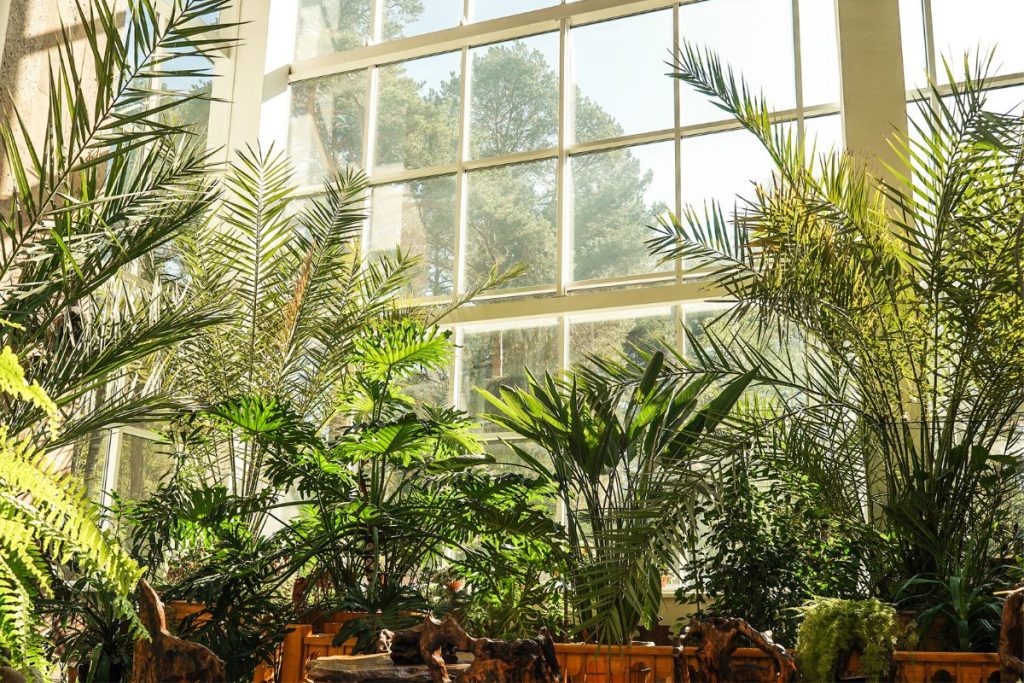
Contents
- 1 Are Palm Plants Toxic To Cats?
- 2 Types of Palm Plants Safe For Cats
- 2.1 Parlor Palm (Chamaedorea elegans)
- 2.2 Banana Palm (Musa acuminata)
- 2.3 Areca Palm (Dypsis lutescens)
- 2.4 Ponytail Palm (Beaucarnea recurvata)
- 2.5 Chinese Fan Palm (Livistona chinensis)
- 2.6 Cat Palm (Chamaedorea cataractarum)
- 2.7 Kentia Palm (Howea forsteriana)
- 2.8 Christmas Palm (Veitchia merrillii)
- 2.9 Belmore Sentry Palm (Howea belmoreana)
- 2.10 Lady Palm (Rhapis flabelliformis)
- 2.11 Canary Date Palm (Phoenix canariensis)
- 2.12 Dwarf Date Palm (Phoenix acaulis)
- 2.13 Feather Palm (Nephrolepis exalta)
- 2.14 Figleaf Palm (Fatsia japonica)
- 2.15 Fortunes Palm (Trachycarpus fortunei)
- 2.16 Majesty Palm (Ravenea rivularis)
- 2.17 Miniature Date Palm (Phoenix robellinii)
- 3 Types of Palm Plants Toxic To Cats
- 4 How To Cat-Proof Your Houseplants
- 5 Conclusion
Are Palm Plants Toxic To Cats?
Yes, some palm plants can be toxic to cats. Depending on the specific type of palm plant, it may contain substances that can cause adverse reactions if ingested by cats. The sago palm (Cycas revoluta) is especially dangerous to cats, as all parts of the plant, including the seeds, are highly toxic and can be potentially fatal. Ingesting sago palm can lead to symptoms such as vomiting, diarrhea, liver failure, seizures, and even death.
Other types of palm plants may not be as toxic but can still cause gastrointestinal upset or mild allergic reactions if ingested by cats. To ensure the safety of your feline companion, it is best to research and confirm the specific toxicity of any palm plant before bringing it into your home. Additionally, suppose your cat has ingested any part of a palm plant or is displaying concerning symptoms. In that case, it is always advisable to contact a veterinarian for proper guidance and medical assistance.
Types of Palm Plants Safe For Cats
You may be wondering if palm plants are safe for cats to be around. The good news is that there are several types of palms that can be safe for your furry friends, such as the Parlor Palm (Chamaedorea elegans), Banana Palm (Musa acuminata), Areca Palm (Dypsis lutescens), Ponytail Palm (Beaucarnea recurvata), and Chinese Fan Palm (Livistona chinensis). These varieties offer a variety of heights, shapes, and colors to choose from while still being pet-friendly. Let’s take a closer look at each type of palm plant so you can decide which one best suits your home and cat!
Parlor Palm (Chamaedorea elegans)
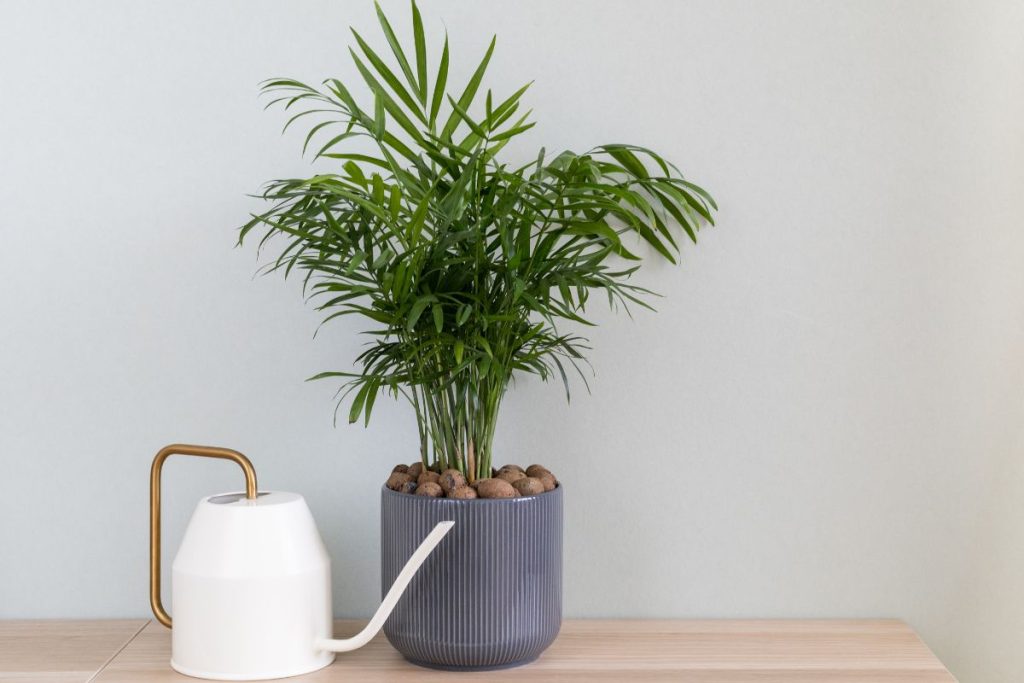
The Parlor Palm (Chamaedorea elegans) is not toxic to cats. This plant’s delicate, fan-like leaves make it a popular choice for those who want a touch of greenery in their home without the worry of harming their feline friend. The Parlor Palm is easy to care for and low maintenance, making it an ideal houseplant for cat owners. With its non-toxic nature and ability to thrive indoors, the Parlor Palm is an excellent choice for any pet-friendly home.
Banana Palm (Musa acuminata)
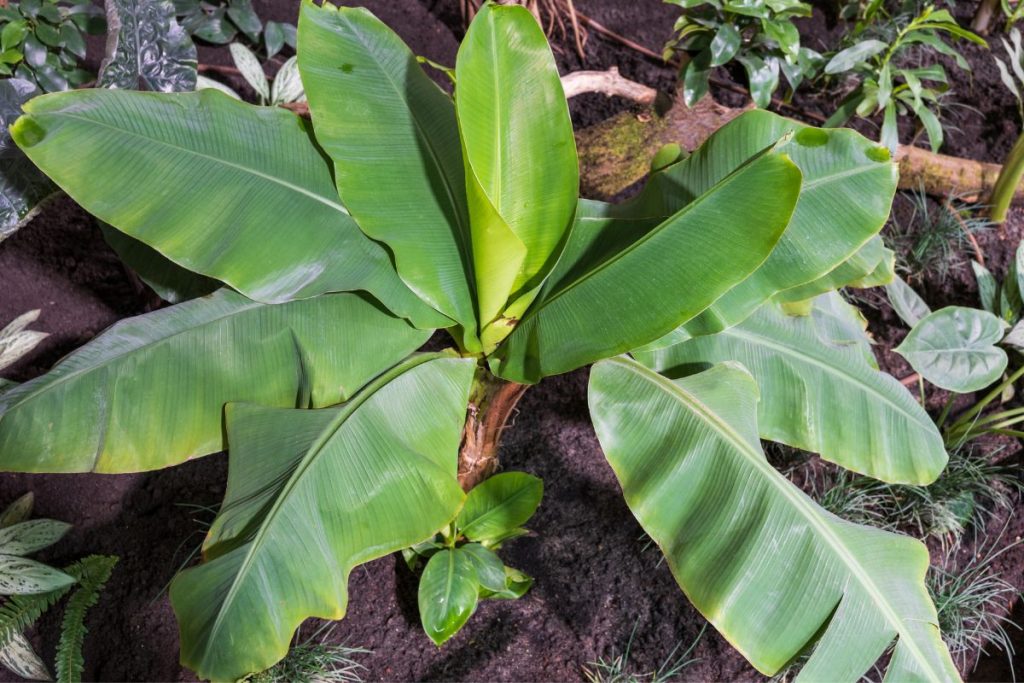
Banana Palm (Musa acuminata) is a great choice for pet owners looking for a low-maintenance plant that won’t harm their furry friends. It’s safe to keep around cats, as the entire plant is nontoxic. With its ornamental leaves and tropical vibe, this palm can instantly brighten up any garden. Plus, it’s easy to care for – all you need to do is water it every so often and provide moderate direct sunlight. So if you’re in search of a plant that your cat won’t have an adverse reaction to, consider adding the Banana Palm!
Areca Palm (Dypsis lutescens)
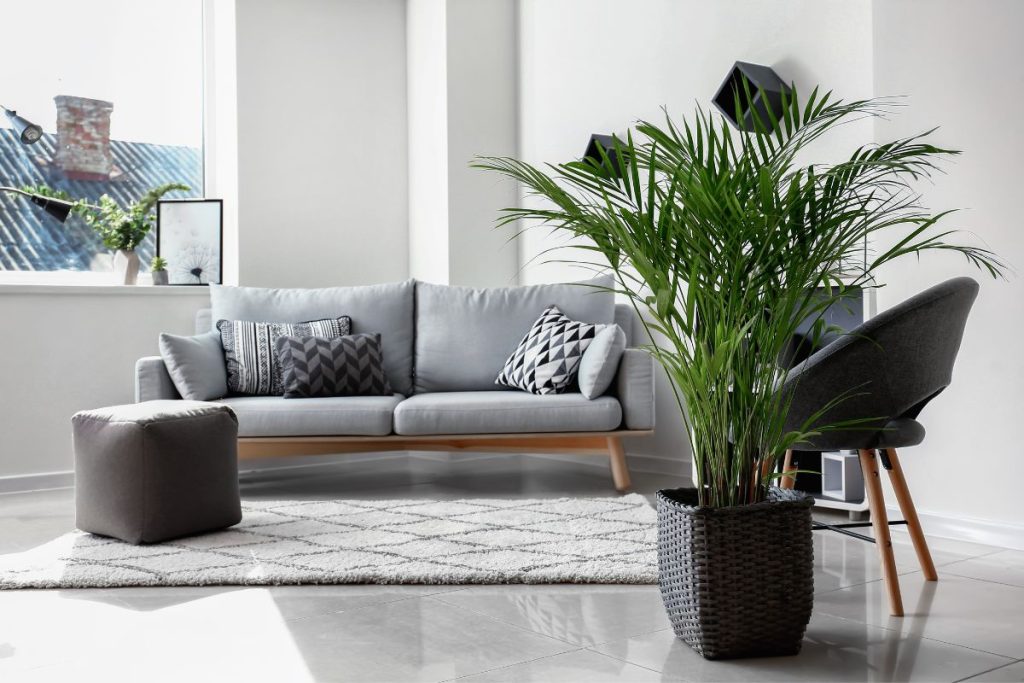
Areca Palm (Dypsis lutescens) is a great choice for those who want to invigorate their home with the tropics. It’s safe and non-toxic, so you don’t need to worry about its effect on your feline companions. This palm will bring beauty and style without compromising the safety of your cat. With proper care, it can thrive in any space. So go ahead and enjoy this plant while keeping your cat secure!
Ponytail Palm (Beaucarnea recurvata)
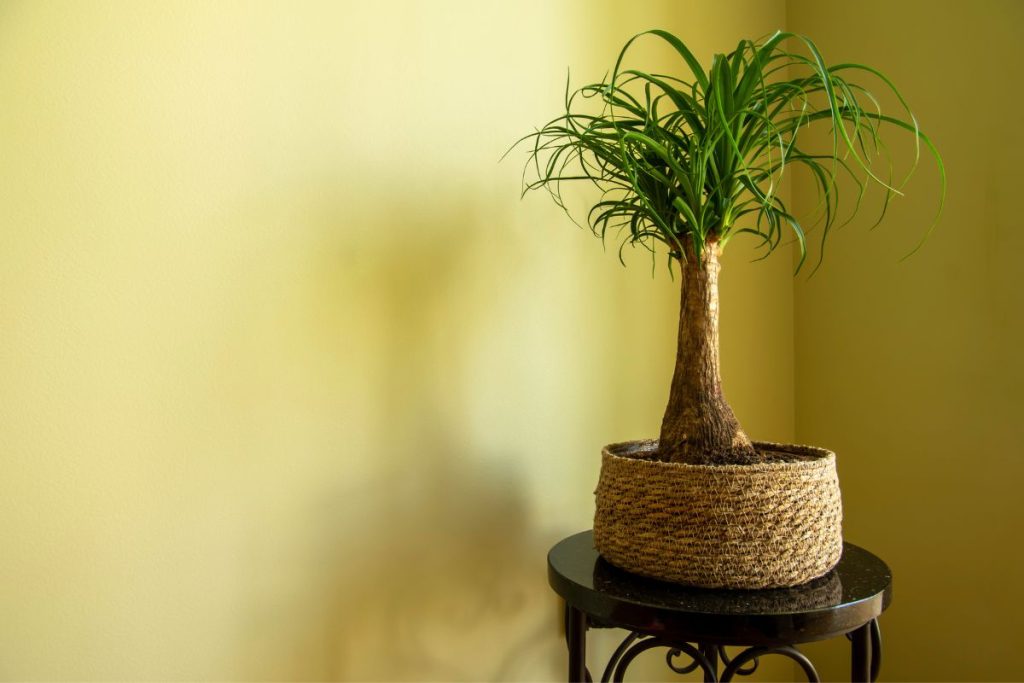
If you’re looking to add a unique, eye-catching touch to your home, the Ponytail Palm (Beaucarnea recurvata) is perfect for you. Although it looks like a palm tree, it’s actually an evergreen succulent that can grow up to 10 feet tall. It’s also non-toxic to cats and other animals, so you don’t need to worry about bringing harm into your home. With proper care and plenty of sunlight, this plant will remain healthy and beautiful for years.
Chinese Fan Palm (Livistona chinensis)
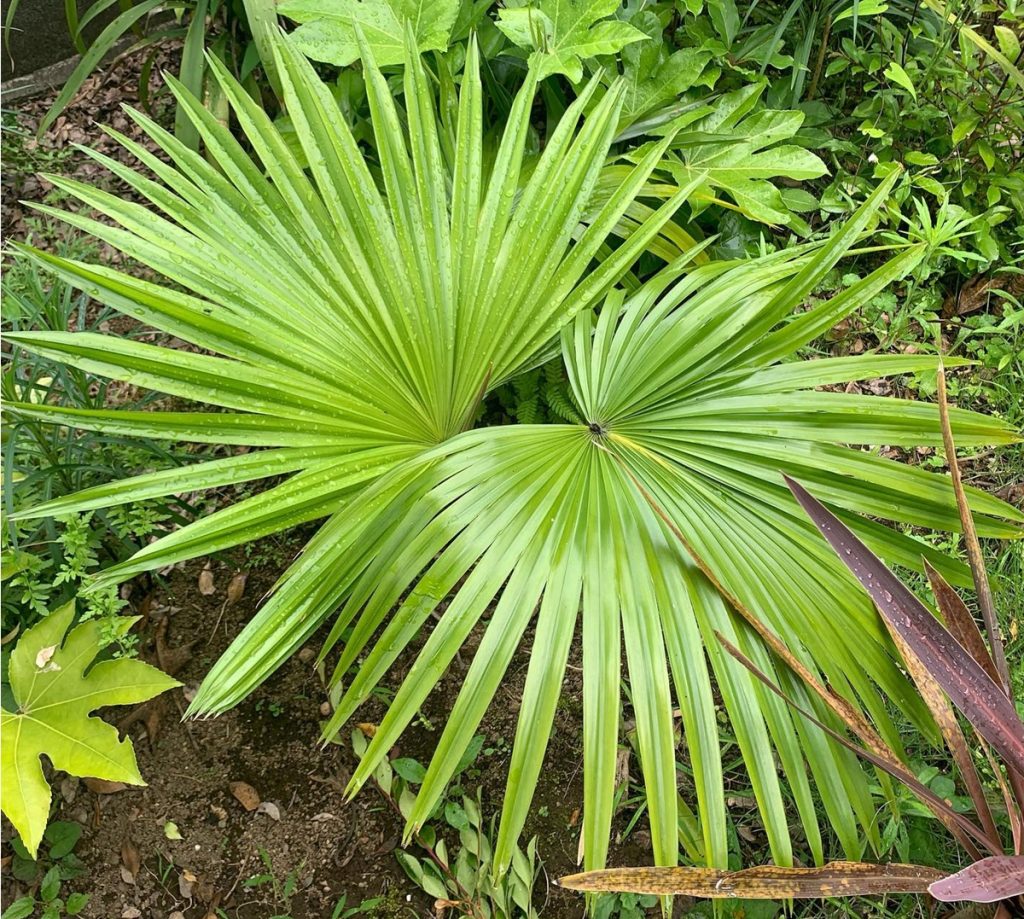
You’ll love the Chinese Fan Palm (Livistona chinensis) for its unique look. This palm is native to China and a great addition to any home. Though it’s not toxic to cats, be sure to keep them away from the leaves as they are sharp and could cause injury. Make sure that your cat has plenty of other areas in your home to explore, with no risk of harm!
Cat Palm (Chamaedorea cataractarum)
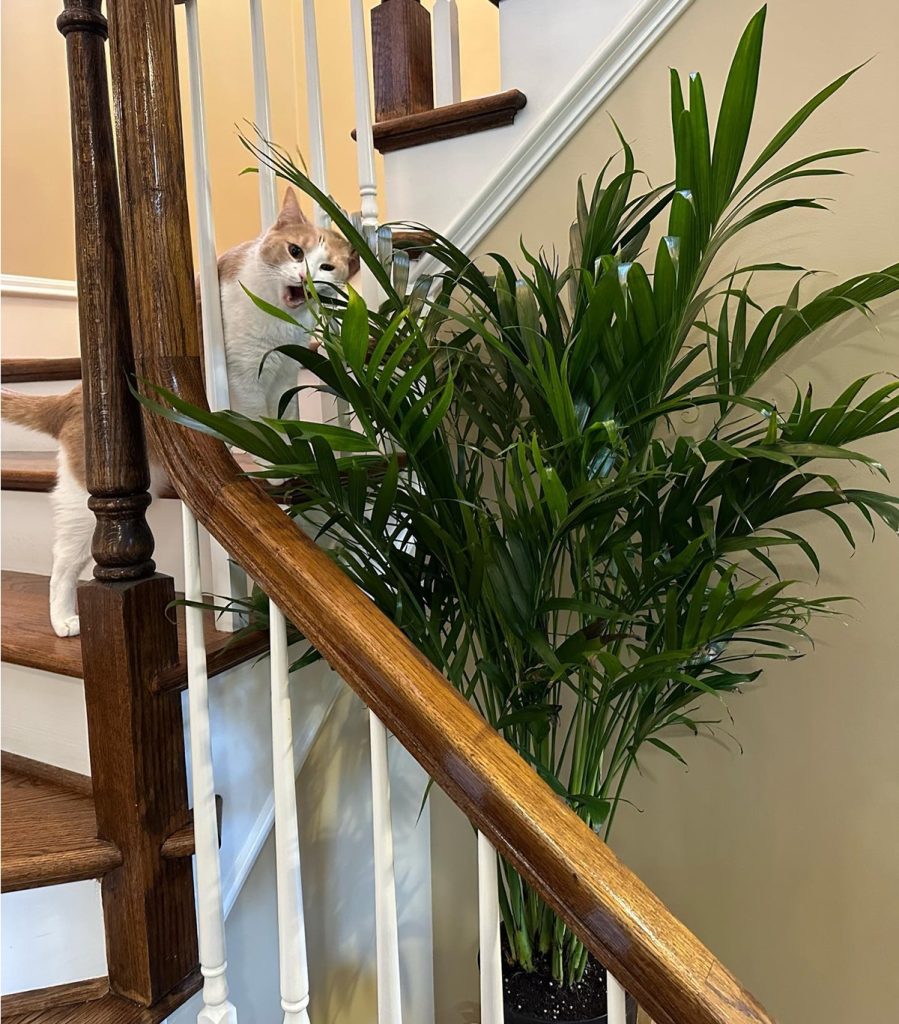
The Cat Palm (Chamaedorea cataractarum) is an attractive addition to any home, and it’s not dangerous for cats either. Its long, arching fronds won’t harm your pet if they decide to take a nibble. This plant also doesn’t produce any sap or toxins that could cause a reaction in cats. Keep in mind that some cats may be allergic to its pollen, but this is rare. Overall, the Cat Palm is a safe choice for homes with cats!
Kentia Palm (Howea forsteriana)
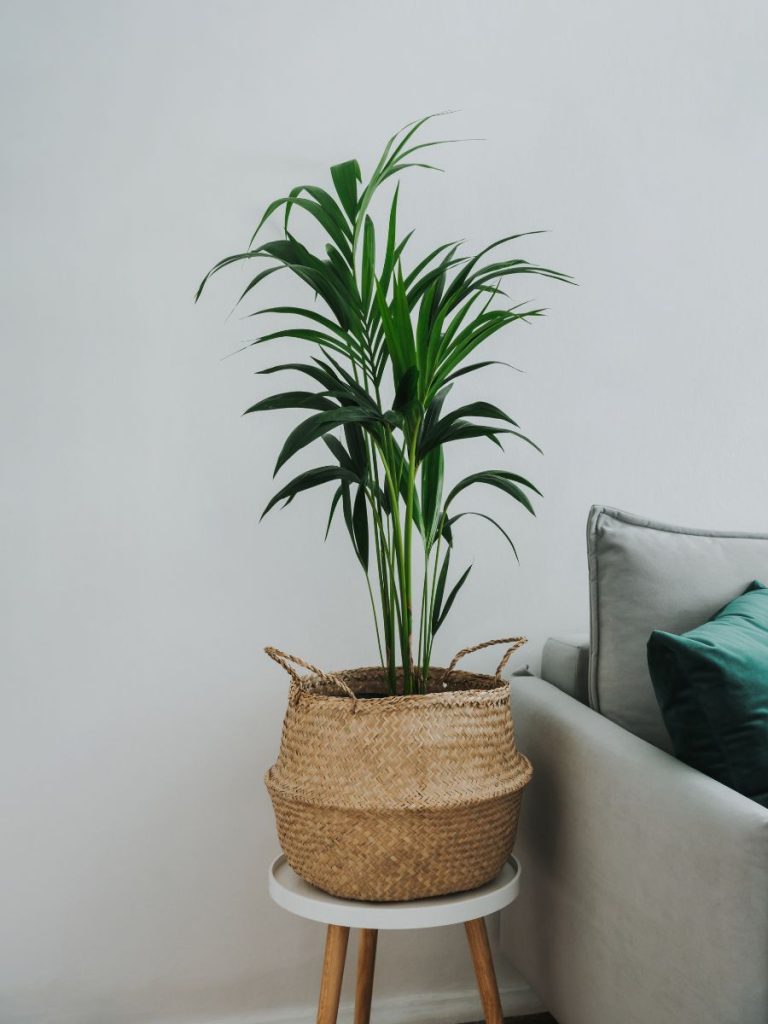
Moving on from Cat Palm, Kentia Palm (Howea forsteriana) is another type of palm plant that may be present in your home. While this variety isn’t considered toxic to cats, it’s still important to keep your feline safe and away from the leaves or fronds of any kind of palm plant. Keeping a close eye on curious kitties is always advised as they explore their environment.
Christmas Palm (Veitchia merrillii)
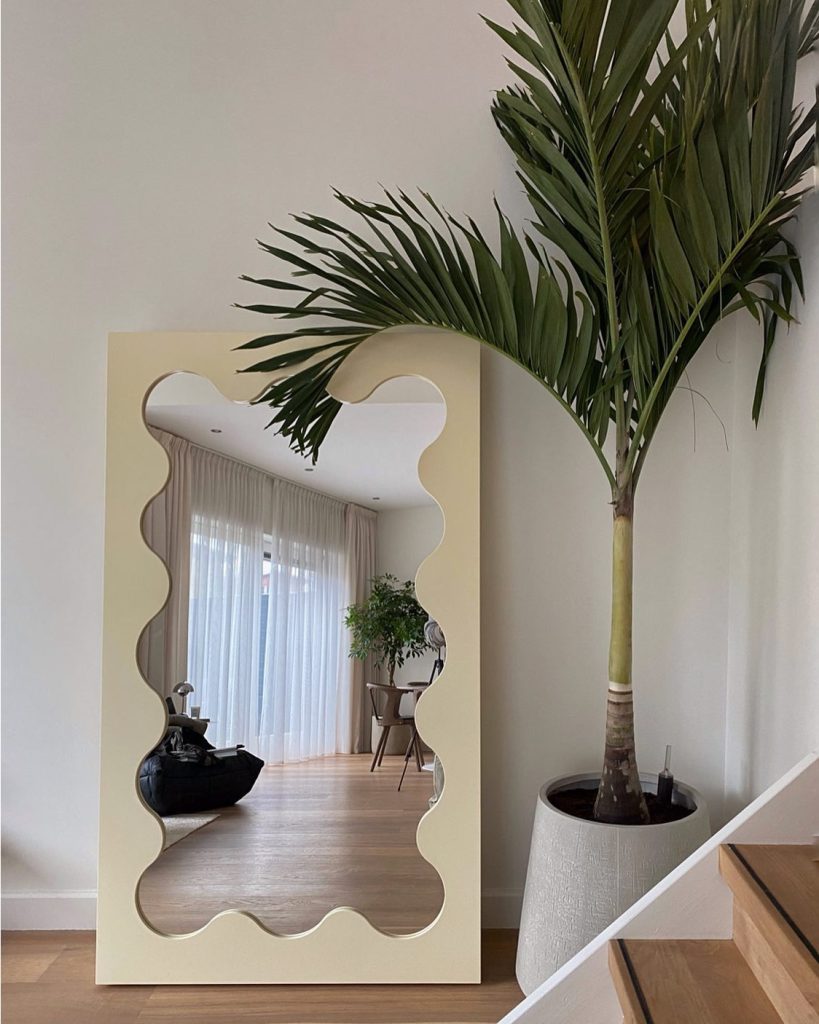
Got a furry friend and want to add some festive spirit to your home? The Christmas Palm is the perfect choice! Not only is it safe for your cat, but it also produces bright red fruits during the holiday season. Its graceful fronds thrive in bright, indirect light, and with regular watering, it can grow up to 20 feet tall.
Belmore Sentry Palm (Howea belmoreana)
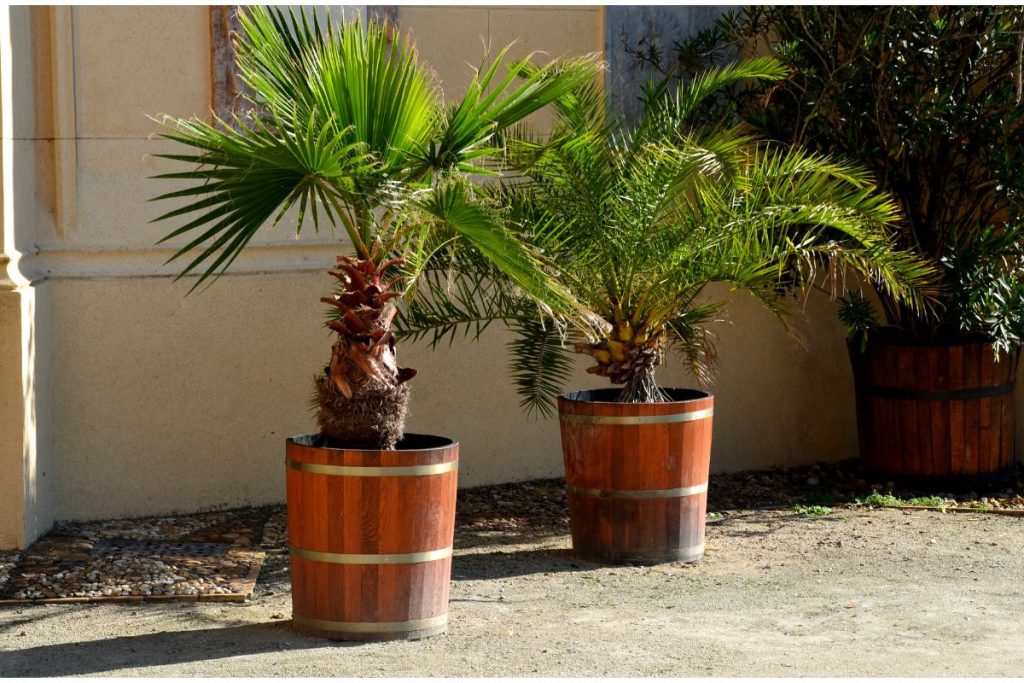
Another popular houseplant for the festive season is Howea belmoreana, also known as the Belmore Sentry Palm. It is another fantastic cat-safe palm option for you. With its long, gracefully arching fronds, it will add an elegant touch to your living space. This palm prefers bright, indirect light and moderate watering, so it’s a great choice for indoor environments.
Lady Palm (Rhapis flabelliformis)
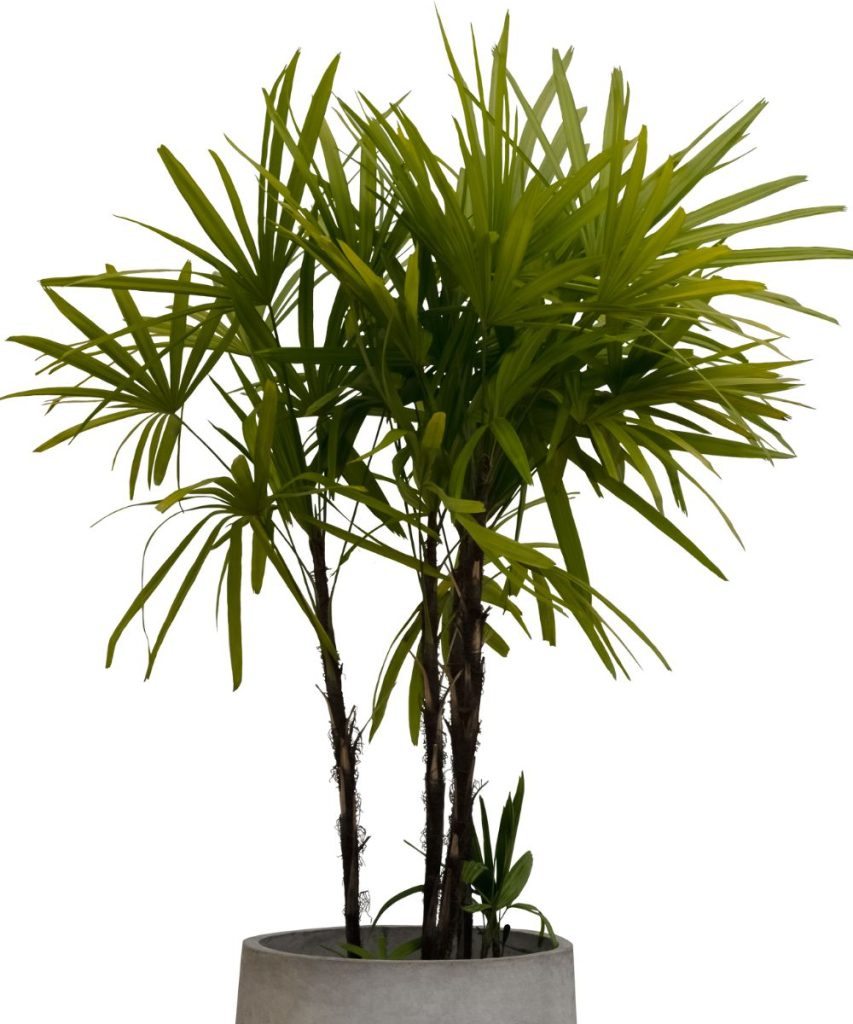
If you’re looking for a festive houseplant that’s safe for cats, the Lady Palm (Rhapis flabelliformis) is a great choice. This attractive palm features fan-shaped leaves and grows slowly to heights of up to six feet. Its foliage is non-toxic to cats, making it an ideal pet-friendly plant. It also requires minimal maintenance and can tolerate some shade as well as low levels of humidity, so it’s easy to care for. With its lush appearance and low risk of harm to your four-legged friends, the Lady Palm adds a bright spot of color to your home without worry!
Canary Date Palm (Phoenix canariensis)
You’ll love the Canary Date Palm (Phoenix canariensis), a beautiful and pet-friendly addition to your home. This tall, evergreen tree is sure to liven up any room. It’s non-toxic to cats and other pets, so you don’t have to worry about its safety. The palm fronds are long and feathery, adding a touch of lushness to your decor. Plus, it’s easy to care for with regular watering and misting. So if you’re looking for a plant that will bring beauty without risk, the Canary Date Palm could be just what you need!
Dwarf Date Palm (Phoenix acaulis)
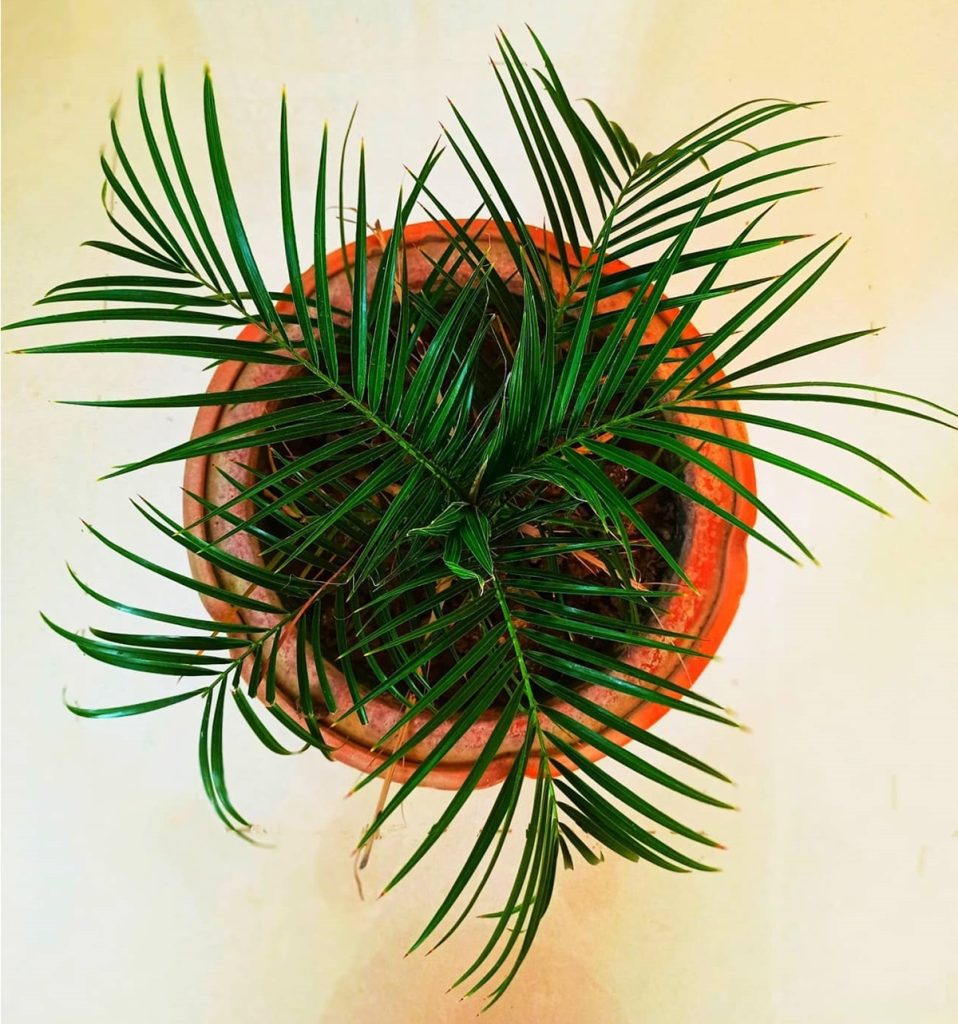
The Dwarf Date Palm (Phoenix acaulis) is an ideal choice for adding a touch of greenery to any living space. Despite its small size, it can still provide a dramatic look. This palm species is generally non-toxic and safe for cats, however it’s always best to check that the plant you’re buying hasn’t been sprayed with pesticides. If your feline friend does decide to take a bite, keep an eye out for signs of gastrointestinal upset or skin irritation just in case!
Feather Palm (Nephrolepis exalta)
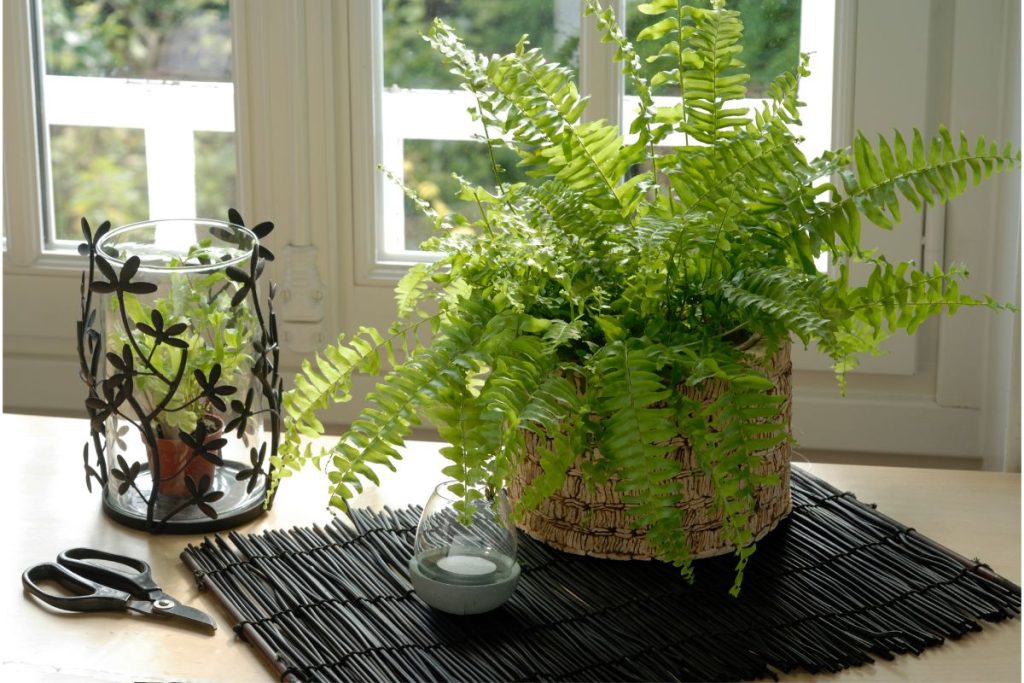
Another great option for adding a touch of greenery to any living space is the Feather Palm (Nephrolepis exalta). This durable plant has an attractive, feather-like frond growth that makes it stand out in any environment. It’s important to note that although this particular species of palm is not toxic to cats, it may cause mild gastrointestinal irritation if ingested. To ensure your cat’s safety, keep this plant away from their reach and keep an eye on them when they’re near it.
Figleaf Palm (Fatsia japonica)
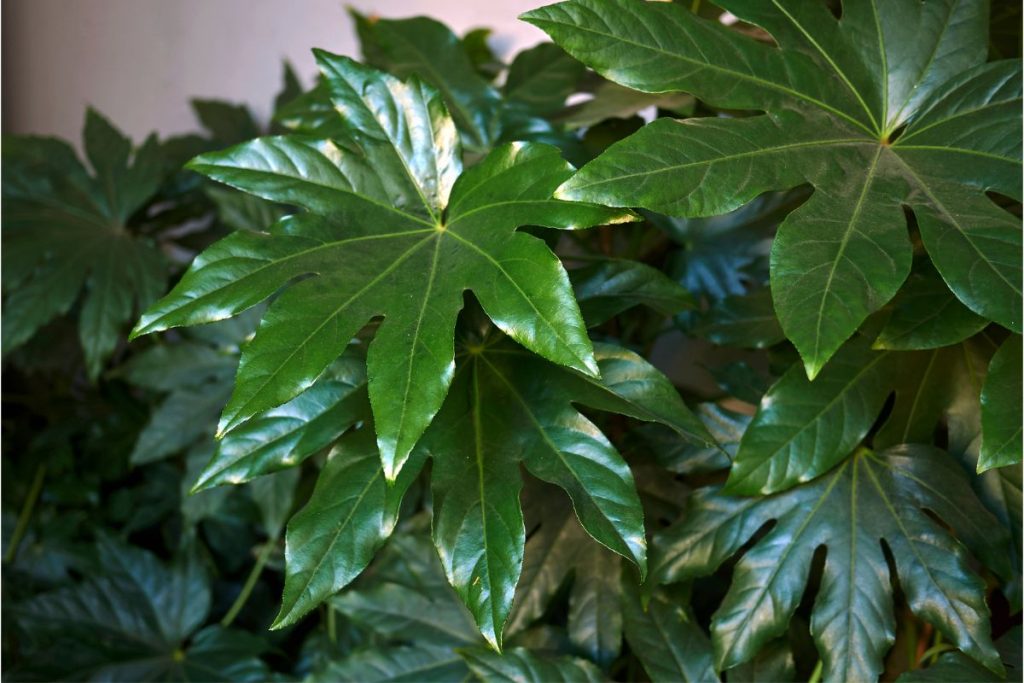
Figleaf Palm to the rescue for cat owners looking for a feline-friendly choice! Also known as the false castor oil plant, it has shiny, large leaves that resemble those of a fig tree. This hardy plant can tolerate low light conditions and prefers regular watering. Brighten up any shaded area indoors or outdoors with this delightful palm-like plant.
Fortunes Palm (Trachycarpus fortunei)
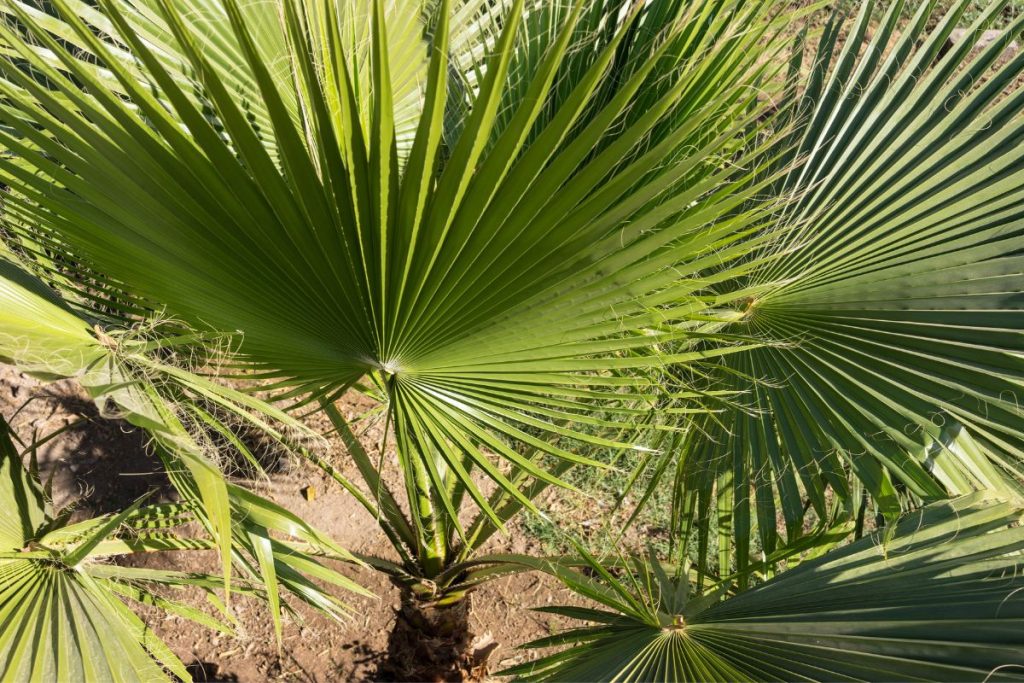
Good news for cat owners seeking a touch of fortune! The Fortunes Palm is a safe and stunning palm plant for your home. Its fan-shaped leaves bring a tropical vibe to any setting. This hardy palm adapts to different light conditions and requires moderate watering. Place it indoors or outdoors for an instant boost of greenery.
Majesty Palm (Ravenea rivularis)
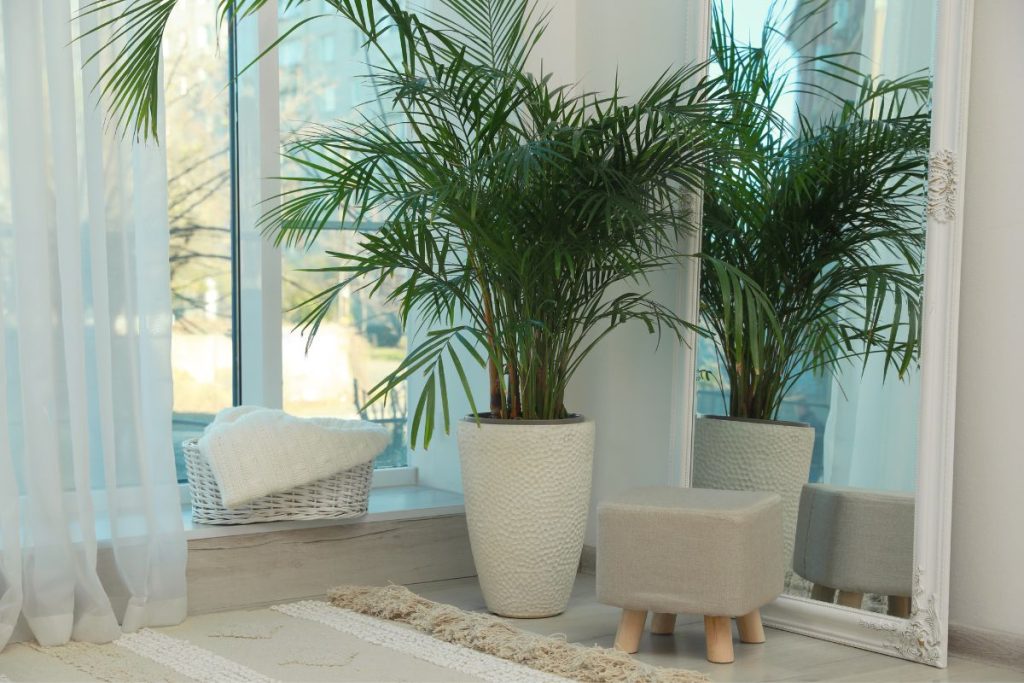
Bring a touch of the tropics to your home with the Majesty Palm (Ravenea rivularis)! Not only is it an attractive, low-maintenance choice, but it’s also safe for cats and other pets. Its leaves are non-toxic, making it a great option if you’re worried about furry friends ingesting any part of this plant. Plus, its slow growth rate makes caring for it easy – no regular pruning is necessary! So go ahead and add some beauty to your home without worrying about your pet’s safety.
Miniature Date Palm (Phoenix robellinii)
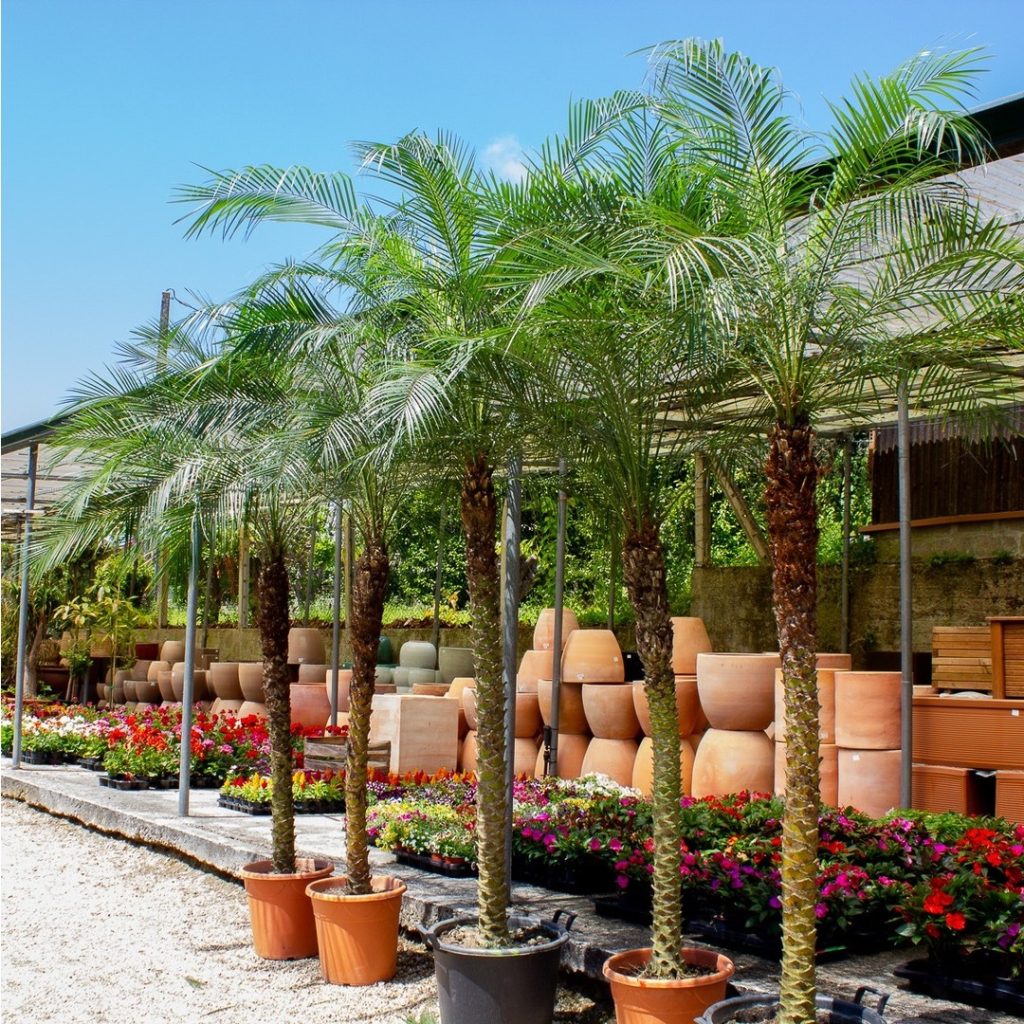
The Miniature Date Palm, or Phoenix robellinii, is a popular choice for many households. It’s a smaller version of the larger Date Palm and can be kept as an indoor or outdoor houseplant. And great news, cat lovers! The Miniature Date Palm is a safe palm choice that adds a touch of charm to any space. With its slender, feather-like fronds, it’s as lovely as can be. Keep your mini palm happy with bright, indirect light and regular watering. Its compact size makes it a perfect fit for smaller homes.
Types of Palm Plants Toxic To Cats
You may not think that palm plants are toxic to cats, but unfortunately, many varieties can be dangerous. Sago Palm, Cardboard Palm (Zamia spp.), Australian Ivy Palm (Brassaia actinophylla), and Grass Palm (Cordyline australis) are all known to contain toxins that can cause serious harm if ingested by felines. It’s important to know which varieties pose a threat so you can keep your beloved cat safe and healthy.
Sago Palm
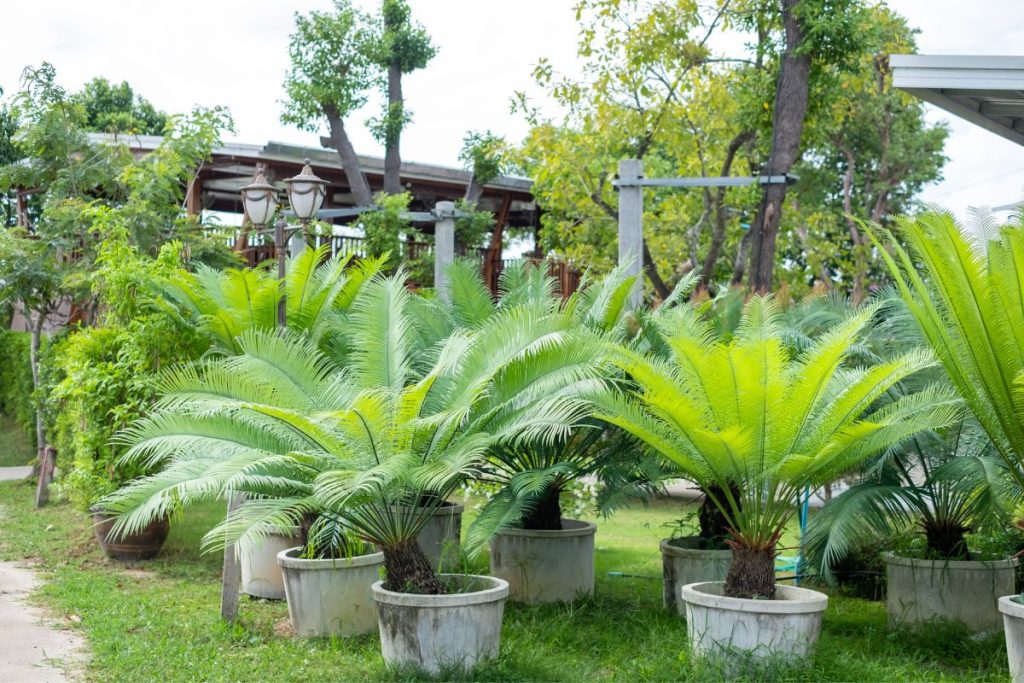
Sago palms are highly toxic to cats. Even if ingested in small amounts, the plant can cause serious illness and even death. They contain a toxin called cycasin, which is found in all parts of the plant including the seeds, leaves, and stem. If your cat ingests sago palm material, it’s important to seek veterinary care immediately as symptoms may not be visible for several days. It’s best to keep these plants away from cats at all costs for their safety.
Cardboard Palm (Zamia spp.)
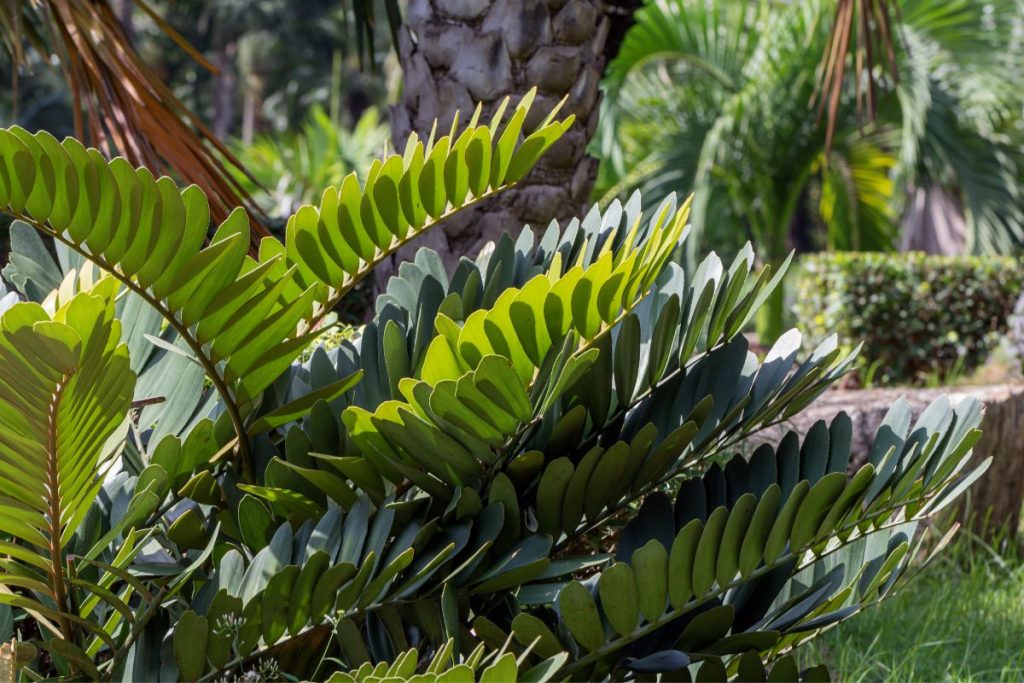
Cardboard palms, like sago palms, are highly dangerous for cats if ingested. Eating just one or two seeds can be deadly due to the toxic principles of cycasin, B-methylamino-l-alanine, and an unidentified neurotoxin. Vomiting (which may include blood), dark stools, jaundice, increased thirst, bloody diarrhea, bruising, and even liver failure can all result from ingestion. It is essential to keep cats away from these plants to avoid severe illness or death.
Australian Ivy Palm (Brassaia actinophylla)
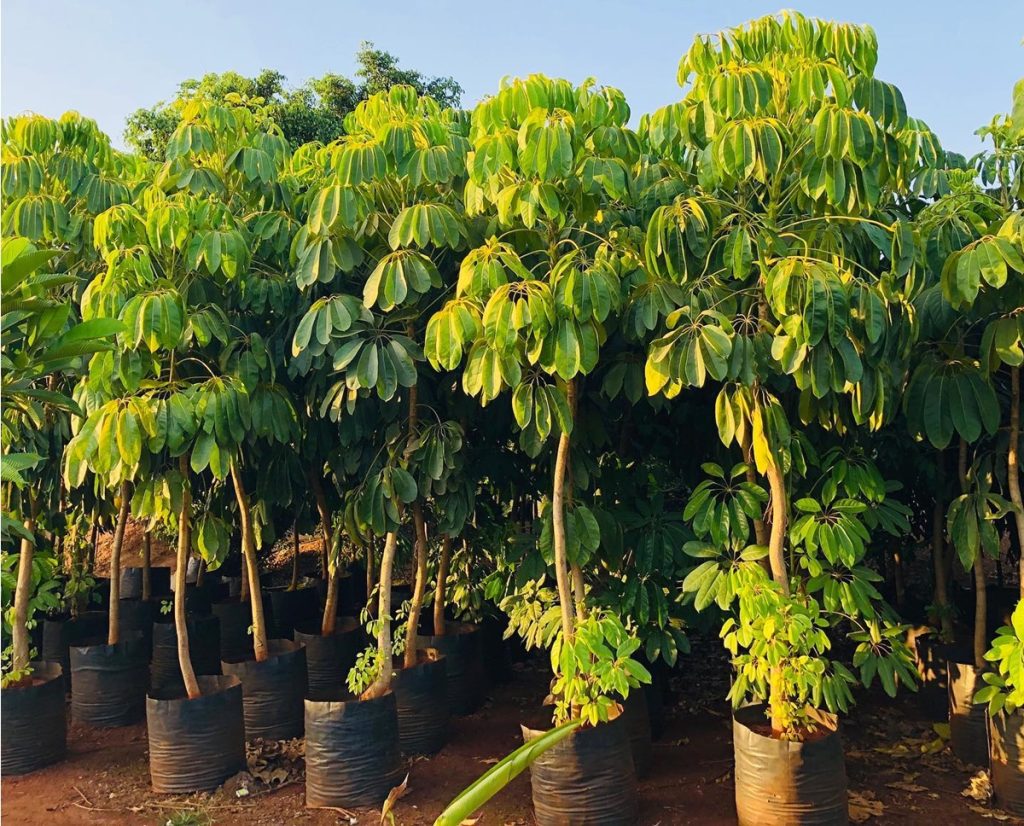
It’s important to know that Australian Ivy Palm (Brassaia actinophylla) contains toxic principles such as terpenoids, saponins, and insoluble oxalates. If your cat ingests this plant, they may experience oral irritation, pain and swelling of the mouth, tongue, and lips, excessive drooling, vomiting (not horses), and difficulty swallowing. To ensure your cat’s safety, keep them away from this plant.
Grass Palm (Cordyline australis)
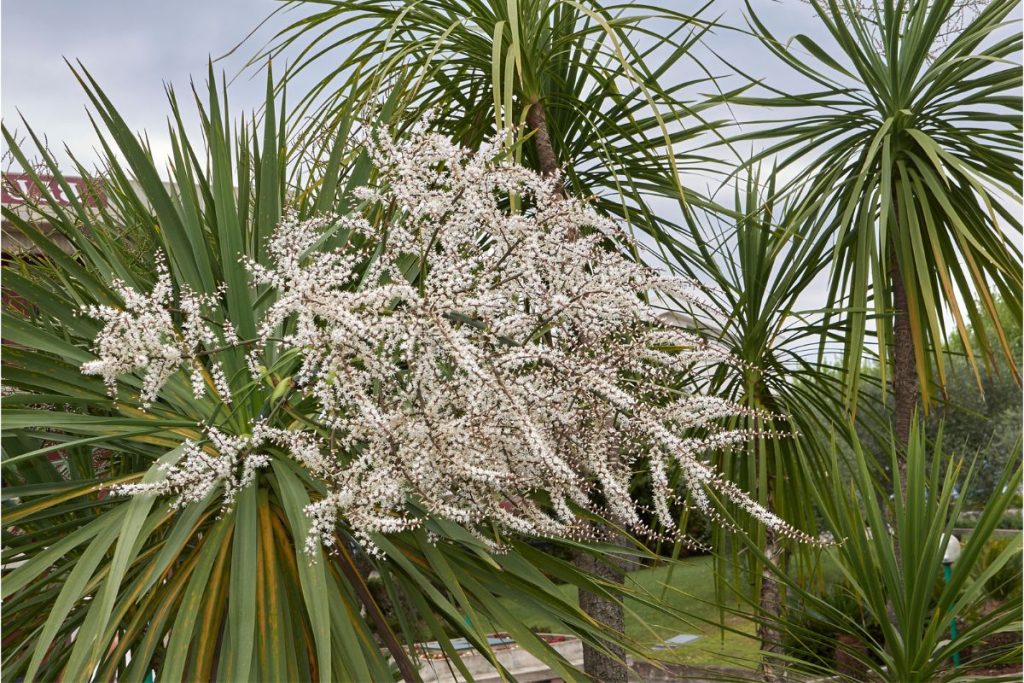
Grass Palm (Cordyline australis) can be dangerous for your kitty, so keep them away from it. Containing saponins, this palm plant can cause your cat to vomit with or without blood, depression, anorexia, and even dilated pupils. To protect your pet’s health, make sure to keep the Grass Palm away from their reach. Don’t risk their safety; take steps to ensure they stay safe and healthy!
How To Cat-Proof Your Houseplants
To cat-proof your houseplants, you’ll want to be sure that any palms are non-toxic for cats. Check plant labels or research online to make sure they won’t harm your furry friend. Keep plants out of reach so curious cats can’t nibble on them and ingest dangerous chemicals. Discourage chewing by keeping the area around plants clean and free of pet toys or food dishes. Foil and other deterrents may also help keep cats away from potentially dangerous foliage. Regularly inspect for signs of damage or droppings, as even safe plants can cause stomach upset if ingested in large amounts.
Conclusion
You’ve learned that some palm plants can be toxic to cats, so it’s important to take the necessary precautions. Cat-proofing your houseplants is a great way to keep your furry friend safe. Research different types of palms and make sure they are non-toxic before bringing them into your home. With a little preparation, you can create a pet-friendly environment for both you and your cat!
